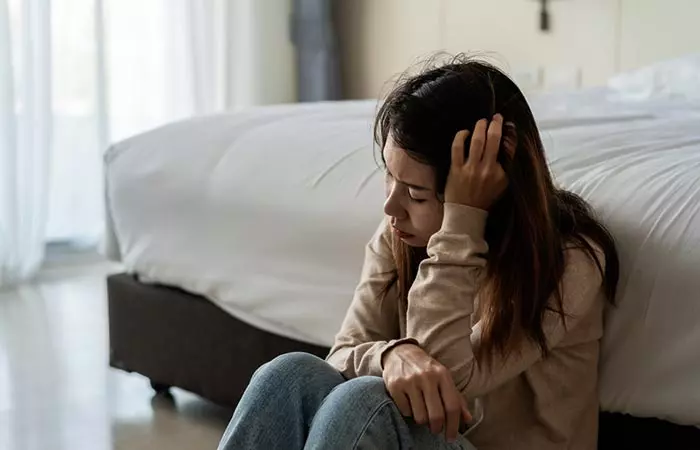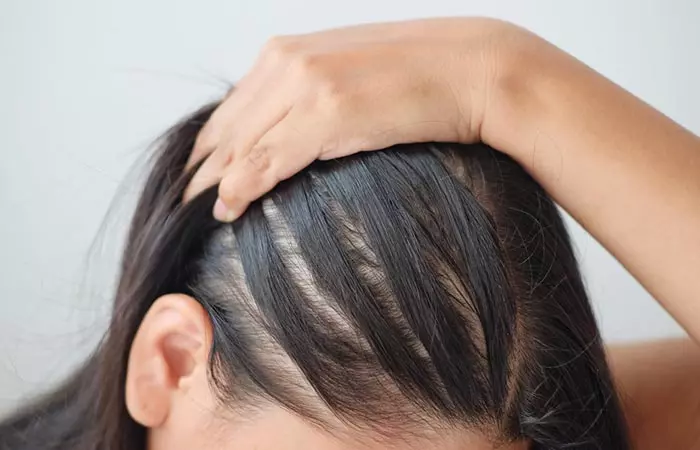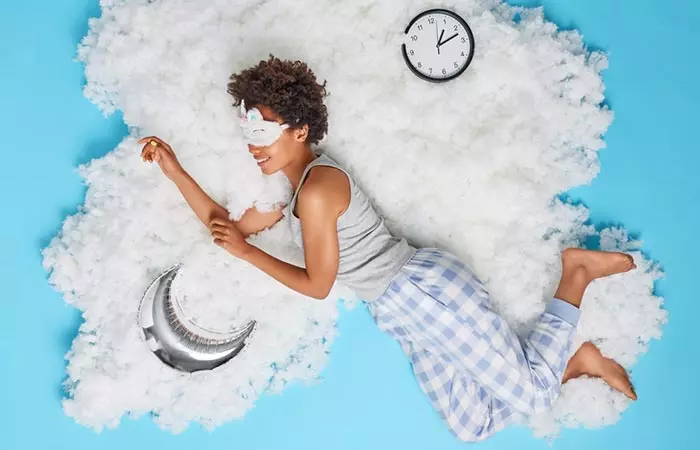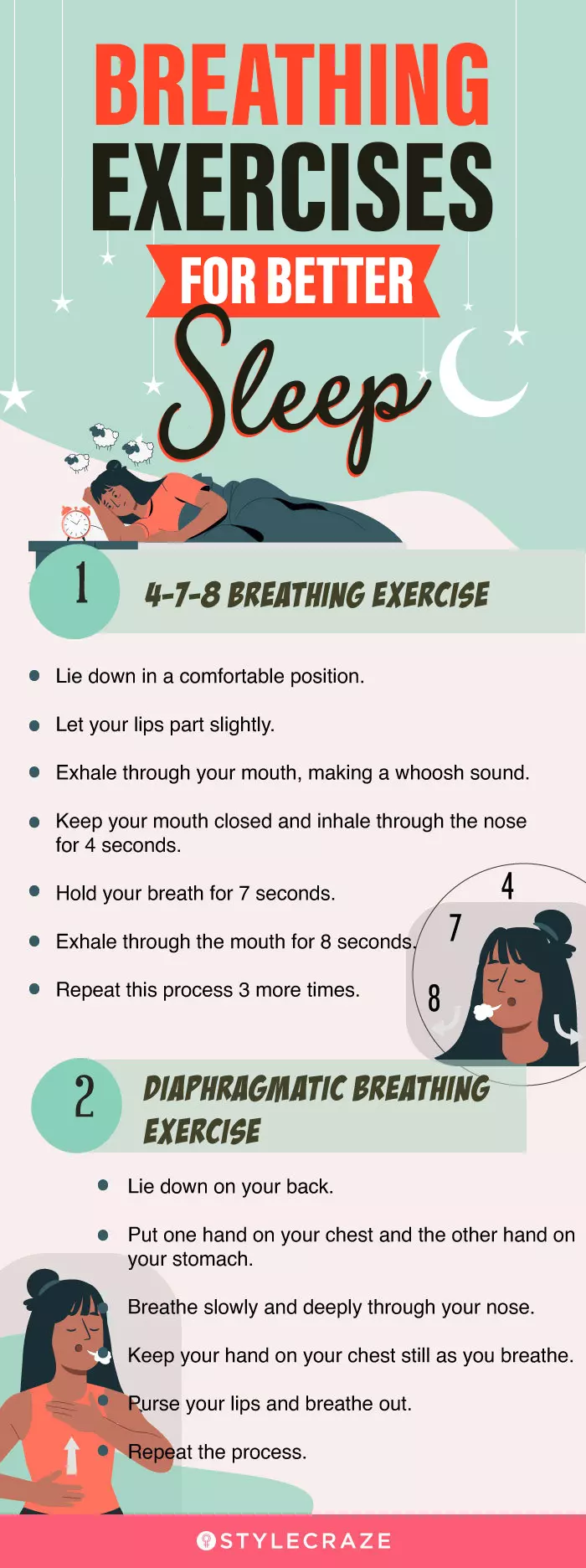Our body undergoes different sleep or circadian cycles that regulate the stem cells and growth of hair follicles. During the anagen stage (hair growth phase) of the hair development cycle, a circadian oscillation results in stem cell development of hair follicles that stimulates hair growth during a particular period of the day (2). Poor sleep patterns and improper circadian cycle raise the cortisol level (stress hormone) that results in hair loss (3) (4). A study published in the American Journal of Pathology illustrated the relationship between stress levels and hair growth. The release of neurohormones, neurotransmittersi Signaling molecules secreted by a neuron that carry chemical signals without which the body cannot function. , and cytokinesi Small membrane-bound proteins that are crucial for the growth and activity of immune system cells and blood cells. related to excess stress level affects the hair growth cycle (5). However, sleep disorders like insomnia or lack of sleep affect the functioning of the human growth hormone (HGH). A study shows that the night surge of growth hormone is dependent on the sleep cycle. Irregular, limited, or disturbed sleep lower HGH levels, which leads to thinning hair or male/female pattern baldness (6) (7). Therefore, a regular sleep routine of 7- 8 hours may help manage stress and decrease premature shedding of hair. Apart from insomnia, sleep disorders like sleep apnea may also play a role in hair loss. Find out more about it in the next section.
Can Sleep Apnea Cause Hair Loss?
Sleep apnea is a sleep disorder where the upper airway gets blocked, reducing or completely stopping the airflow. This may disrupt your sleep and result in poor sleep quality, which may lead to hair loss. Sleep apnea may cause hair loss due to the following reasons:
Insufficient sleep may promote insulin resistance, which may increase the level of androgens (male sex hormones) in your body (8). The increased androgen levels may lead to hair loss (9). Sleep apnea often leads to poor sleep quality, which may cause stress. Elevated stress can disrupt the hair growth cycle and result in hair loss (10).
Lifestyle changes, proper diet, and regular sleep-wake cycles are important to improve hair quality and reduce hair shedding (telogen effluvium). Here are a few strategies that can help improve your sleep environment.
Tips To Improve Sleep Hygiene
Maintain a consistent sleep routine. It helps regulate your body’s natural function, improves the quality of life, and positively impacts the stem cell proliferation of hair follicles. Keep your room dark and limit the light from electronic devices. A study showed that darkness stimulates melatonini A natural hormone produced by the pineal gland (located in the brain) that helps promote sleep. secretion that improves the quality of sleep (11), (12). You can also wear an eye mask or eye pad for better sleep. It is easier to sleep if your surroundings are quiet. Thus, make your room sound-proof or close the door for a good sleep. A comfortable bed and pillow are essential to enhance your sleep quality. Alcohol intake during bedtime also hampers sleep quality and hygiene. Hence, avoid consuming alcohol before you go to bed. Do not eat a heavy meal just before sleeping. Maintain at least 2-3 hours of gap between dinner and bedtime. Reduce the stress in your daily life. Deep breathing exercises and yoga may help relax and calm the mind.
Shashwat Agarwal, a blogger, talks about his personal experience with hair loss due to lack of sleep. He shares how it affected him, “For many months leading up to my first semester in college, I hadn’t been sleeping well. Unaware of the fact that it was impacting my hair negatively. I never imagined that not sleeping well could lead me to getting bald. But it did (i).”
Does oversleeping cause hair loss? Check out the infographic below to know more!Illustration: StyleCraze Design Team No, oversleeping does not cause hair loss. Can 6 hours of sleep cause hair loss? Adults need at least 7 or more hours of sleep every night. So, 6 hours of sleep may cause hair loss. Poor sleep and an irregular circadian rhythm may raise stress hormones and cause hair loss. Can pillows cause hair loss? Pillows by themselves do not cause hair loss. However, pillow cases with a rough texture may lead to hair damage, resulting in hair loss. Lack of sleep can cause hair loss. Learn how to get the rest you need to keep your hair healthy in the following video!









